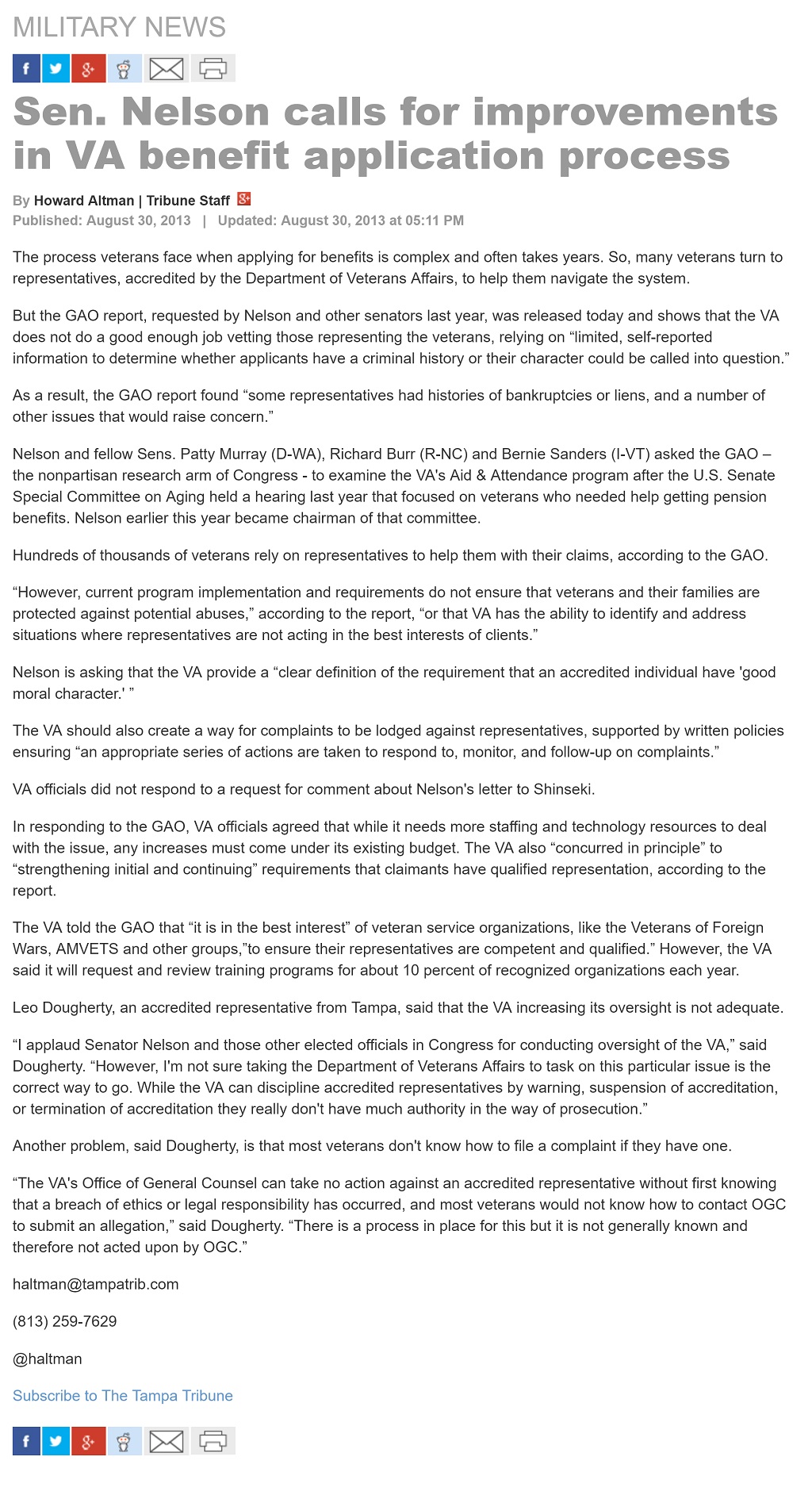
The process veterans face when applying for benefits is complex and often takes years. So, many veterans turn to representatives, accredited by the Department of Veterans Affairs, to help them navigate the system.
But the GAO report, requested by Nelson and other senators last year, was released today and shows that the VA does not do a good enough job vetting those representing the veterans, relying on “limited, self-reported information to determine whether applicants have a criminal history or their character could be called into question.”
As a result, the GAO report found “some representatives had histories of bankruptcies or liens, and a number of other issues that would raise concern.”
Nelson and fellow Sens. Patty Murray (D-WA), Richard Burr (R-NC) and Bernie Sanders (I-VT) asked the GAO – the nonpartisan research arm of Congress – to examine the VA’s Aid & Attendance program after the U.S. Senate Special Committee on Aging held a hearing last year that focused on veterans who needed help getting pension benefits. Nelson earlier this year became chairman of that committee.
Hundreds of thousands of veterans rely on representatives to help them with their claims, according to the GAO.
“However, current program implementation and requirements do not ensure that veterans and their families are protected against potential abuses,” according to the report, “or that VA has the ability to identify and address situations where representatives are not acting in the best interests of clients.”
Nelson is asking that the VA provide a “clear definition of the requirement that an accredited individual have ‘good moral character.’ ”
The VA should also create a way for complaints to be lodged against representatives, supported by written policies ensuring “an appropriate series of actions are taken to respond to, monitor, and follow-up on complaints.”
VA officials did not respond to a request for comment about Nelson’s letter to Shinseki.
In responding to the GAO, VA officials agreed that while it needs more staffing and technology resources to deal with the issue, any increases must come under its existing budget. The VA also “concurred in principle” to “strengthening initial and continuing” requirements that claimants have qualified representation, according to the report.
The VA told the GAO that “it is in the best interest” of veteran service organizations, like the Veterans of Foreign Wars, AMVETS and other groups,”to ensure their representatives are competent and qualified.” However, the VA said it will request and review training programs for about 10 percent of recognized organizations each year.
Leo Dougherty, an accredited representative from Tampa, said that the VA increasing its oversight is not adequate.
“I applaud Senator Nelson and those other elected officials in Congress for conducting oversight of the VA,” said Dougherty. “However, I’m not sure taking the Department of Veterans Affairs to task on this particular issue is the correct way to go. While the VA can discipline accredited representatives by warning, suspension of accreditation, or termination of accreditation they really don’t have much authority in the way of prosecution.”
Another problem, said Dougherty, is that most veterans don’t know how to file a complaint if they have one.
“The VA’s Office of General Counsel can take no action against an accredited representative without first knowing that a breach of ethics or legal responsibility has occurred, and most veterans would not know how to contact OGC to submit an allegation,” said Dougherty. “There is a process in place for this but it is not generally known and therefore not acted upon by OGC.”
